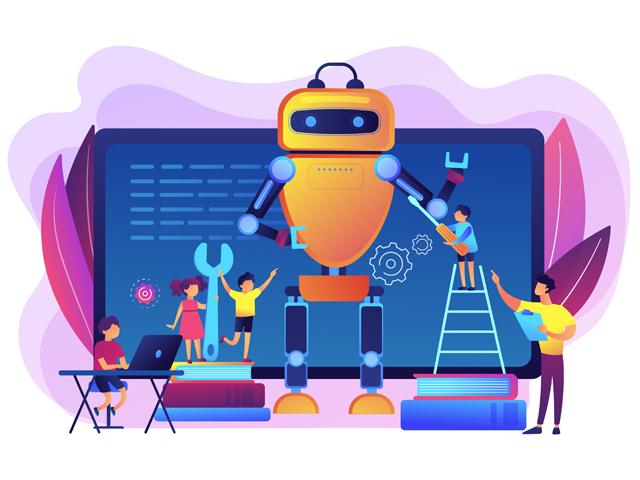
In today's rapidly evolving world, technology has become an integral part of our lives, transforming the way we work, communicate, and learn. Among the groundbreaking technologies that have taken center stage, Artificial Intelligence (AI) stands out as a game-changer, especially in the realm of education.
From personalized learning experiences to streamlined administrative processes, AI's role in education cannot be overstated. In this article, we delve into the importance of correctly integrating AI into students' learning processes and explore the benefits it brings to the table.
Enhancing Personalized Learning
One of the most captivating facets of incorporating AI into education is its capacity to provide customized learning encounters. Conventional classrooms frequently face challenges in meeting the varied requirements of every student. Nonetheless, AI-driven utilities scrutinize the distinctive learning trends, strengths, and areas needing enhancement for each student, crafting unique educational journeys.
This ensures that students receive the right content, pacing, and assessment methods that align with their unique learning styles. As a result, learning becomes more engaging and effective, fostering a deeper understanding of the subject matter.
Efficient Administrative Tasks
Beyond the classroom, AI streamlines administrative tasks, allowing educators to focus more on teaching. Time-consuming activities like grading assignments and managing schedules can be automated through AI systems. This not only reduces the burden on educators but also minimizes the chances of errors, ensuring fair and accurate evaluation of students' performance. Consequently, educators can invest more time in creating engaging learning materials and nurturing meaningful student-teacher interactions.
AI-Powered Interactive Learning Tools
AI-driven interactive learning tools have revolutionized the way students engage with educational content. From language learning apps that provide real-time feedback on pronunciation to virtual laboratories that simulate scientific experiments, these tools offer hands-on experiences that bridge the gap between theoretical knowledge and practical application.
By immersing students in dynamic learning environments, AI-powered tools foster curiosity, critical thinking, and problem-solving skills, which are crucial for success in the modern world.
Ensuring Ethical Use of AI
While AI offers transformative benefits, it is crucial to address the ethical considerations that come with its integration into education. AI detection, for instance, plays a pivotal role in ensuring that students' interactions with technology are meaningful and productive. Through AI detection mechanisms, institutions can monitor students' progress, identifying any potential gaps in understanding or areas that may require additional support.
However, it is essential to strike a balance between using AI for productive purposes and safeguarding students' privacy and data. Institutions must adhere to strict data protection protocols to maintain the trust of students and their families.
Lifelong Learning and Skill Enhancement
The fast-paced nature of technological advancements has redefined the job market, emphasizing the need for continuous learning and skill enhancement. AI, in this context, serves as a lifelong learning companion. Online platforms powered by AI algorithms offer a plethora of courses and resources that cater to individual skill gaps and career aspirations.
This democratization of education enables individuals to upskill or reskill at their own pace, regardless of their geographical location. Consequently, AI not only supports traditional education but also facilitates ongoing personal and professional growth.
Overcoming Language Barriers
AI-powered language translation tools have broken down language barriers, enabling students to access knowledge from around the world. Students can now engage with educational content in their native language, regardless of the language of instruction. This inclusivity promotes equal access to education and fosters a global learning community where diverse perspectives enrich the educational experience.
Promoting Collaborative Learning
Collaborative learning is an essential aspect of education, fostering teamwork, communication, and empathy. AI-enhanced collaborative platforms create virtual spaces where students can collaborate on projects, exchange ideas, and provide real-time feedback.
These platforms often incorporate AI-powered features like sentiment analysis, ensuring that group dynamics remain positive and productive. By promoting collaborative learning, AI prepares students for the collaborative work environments they will likely encounter in their future careers.
Final Thoughts
As AI continues to reshape various sectors, its impact on education is profound. From personalized learning experiences to efficient administrative processes, AI brings many benefits that can significantly enhance students' learning journeys. However, ethical considerations must guide the integration of AI, ensuring that students' privacy and data are safeguarded.
With the right approach, AI can revolutionize education, making it more accessible, engaging, and relevant in a rapidly changing world. Embracing AI in education is not about replacing teachers; it's about empowering them and their students to navigate the complexities of the digital age with confidence and competence.











